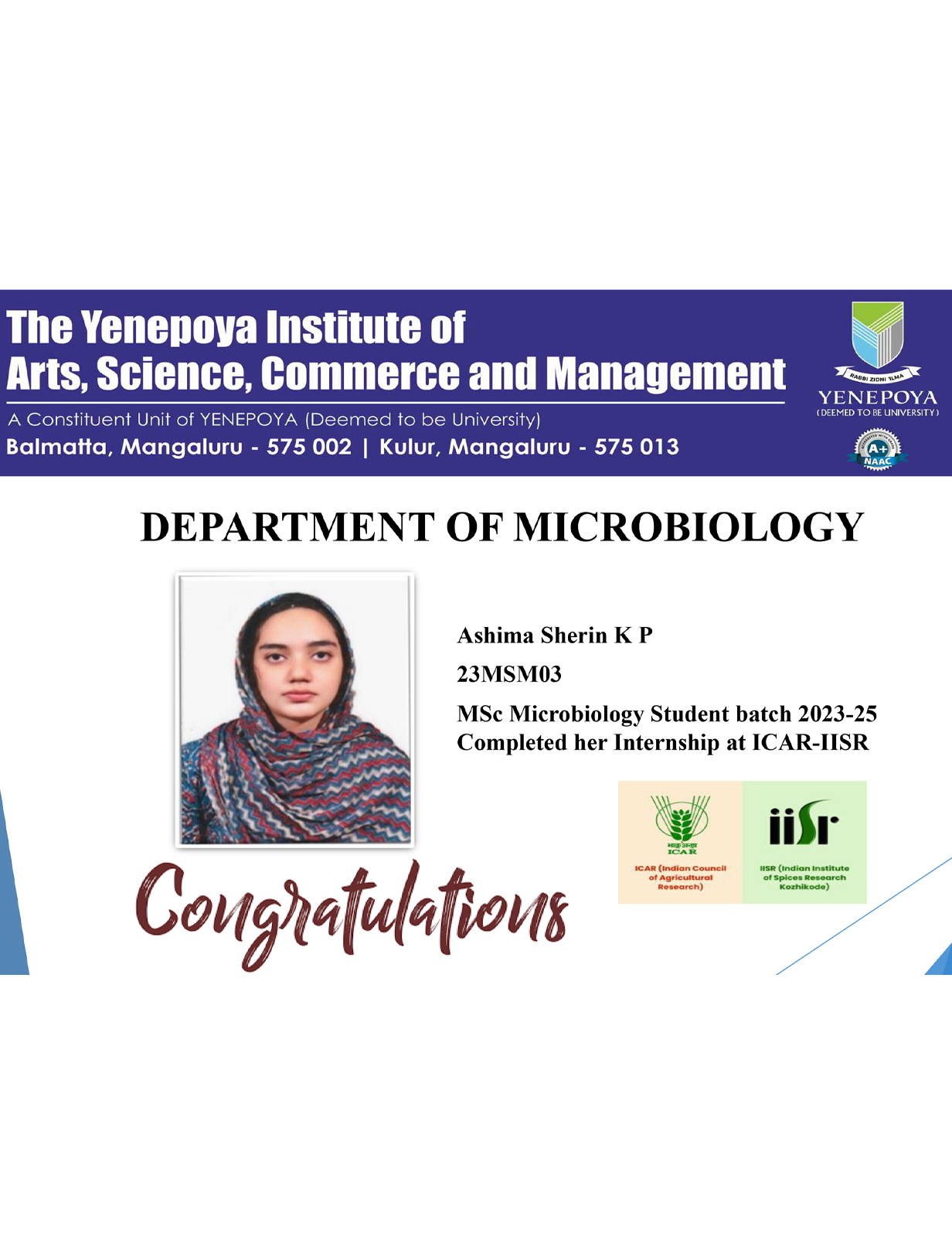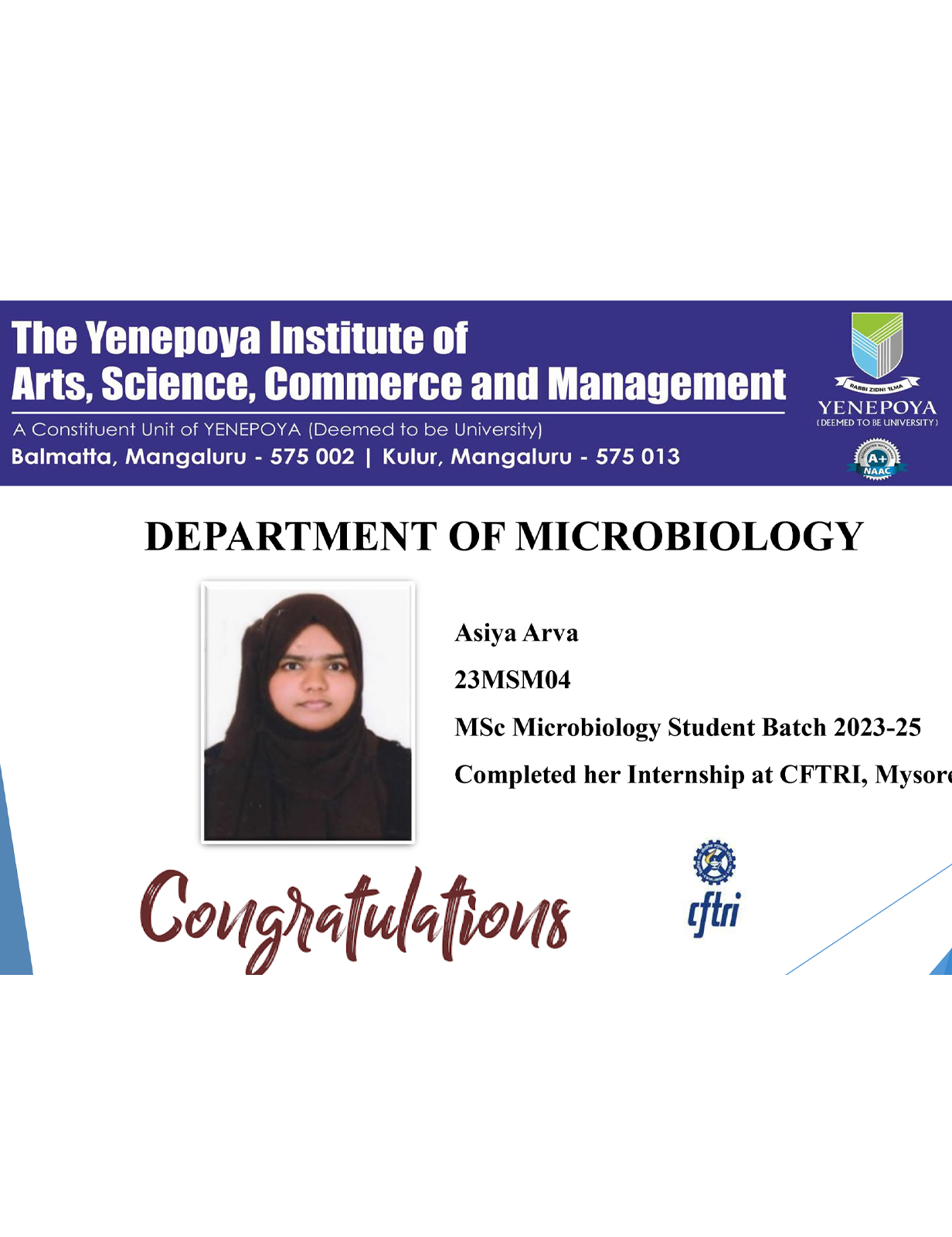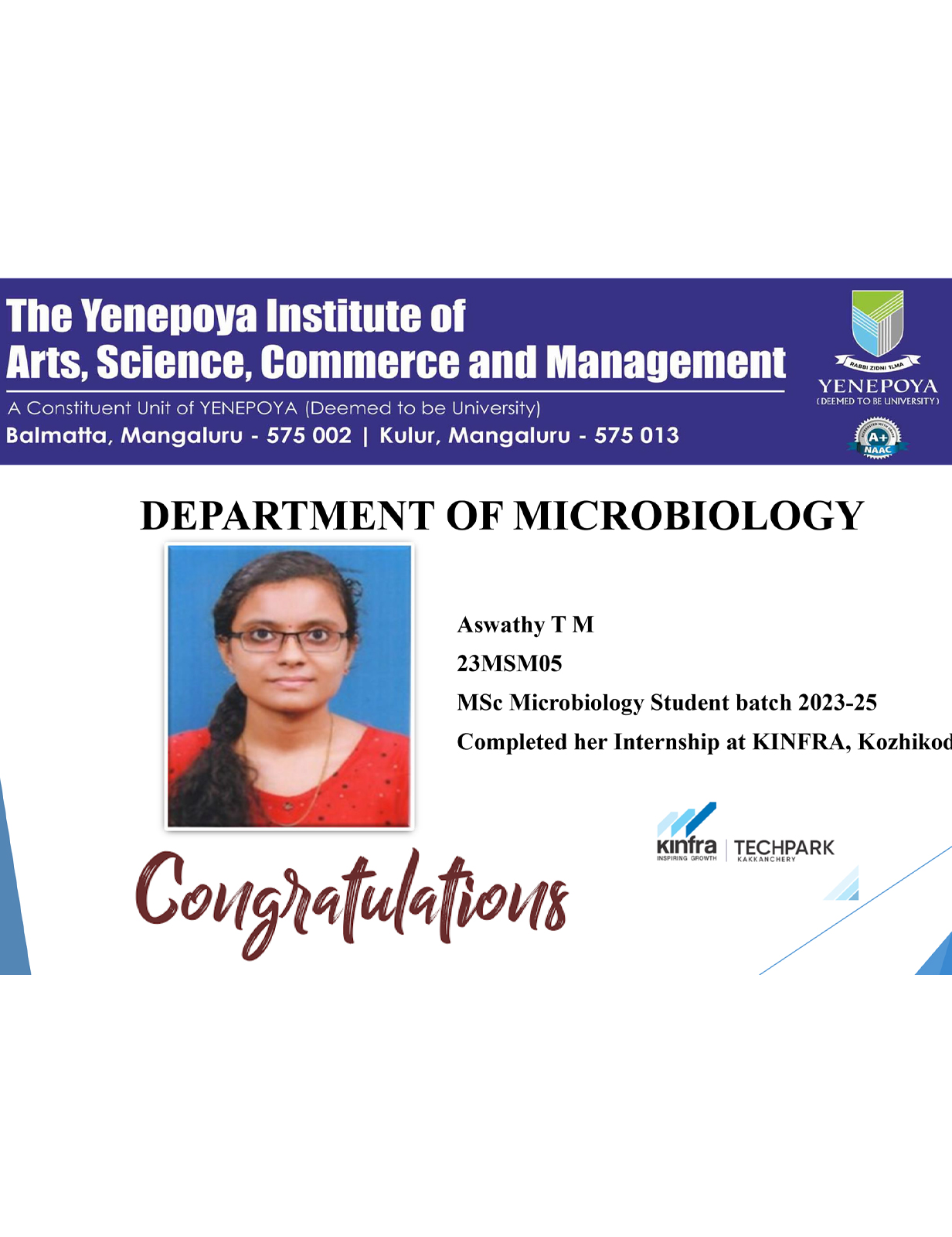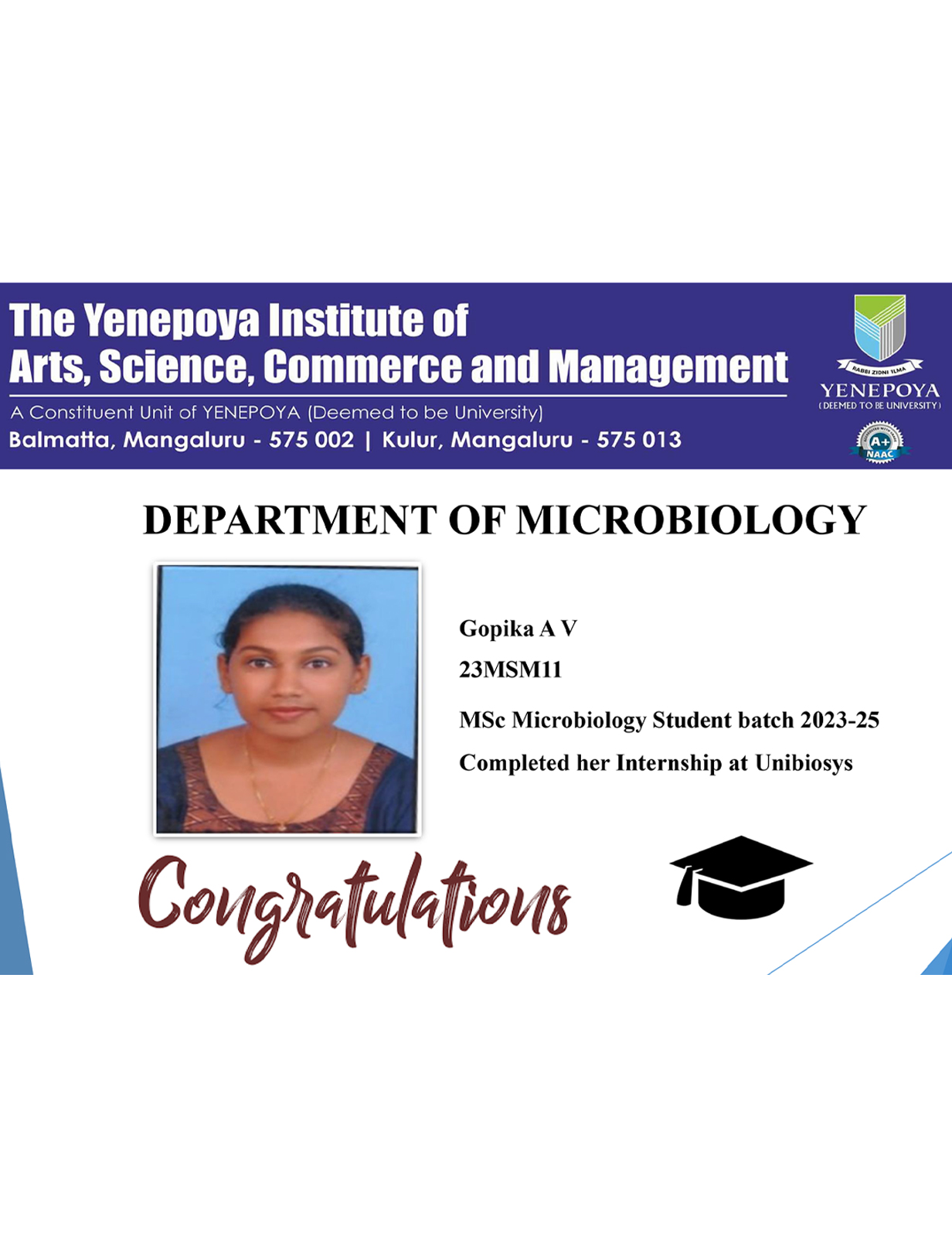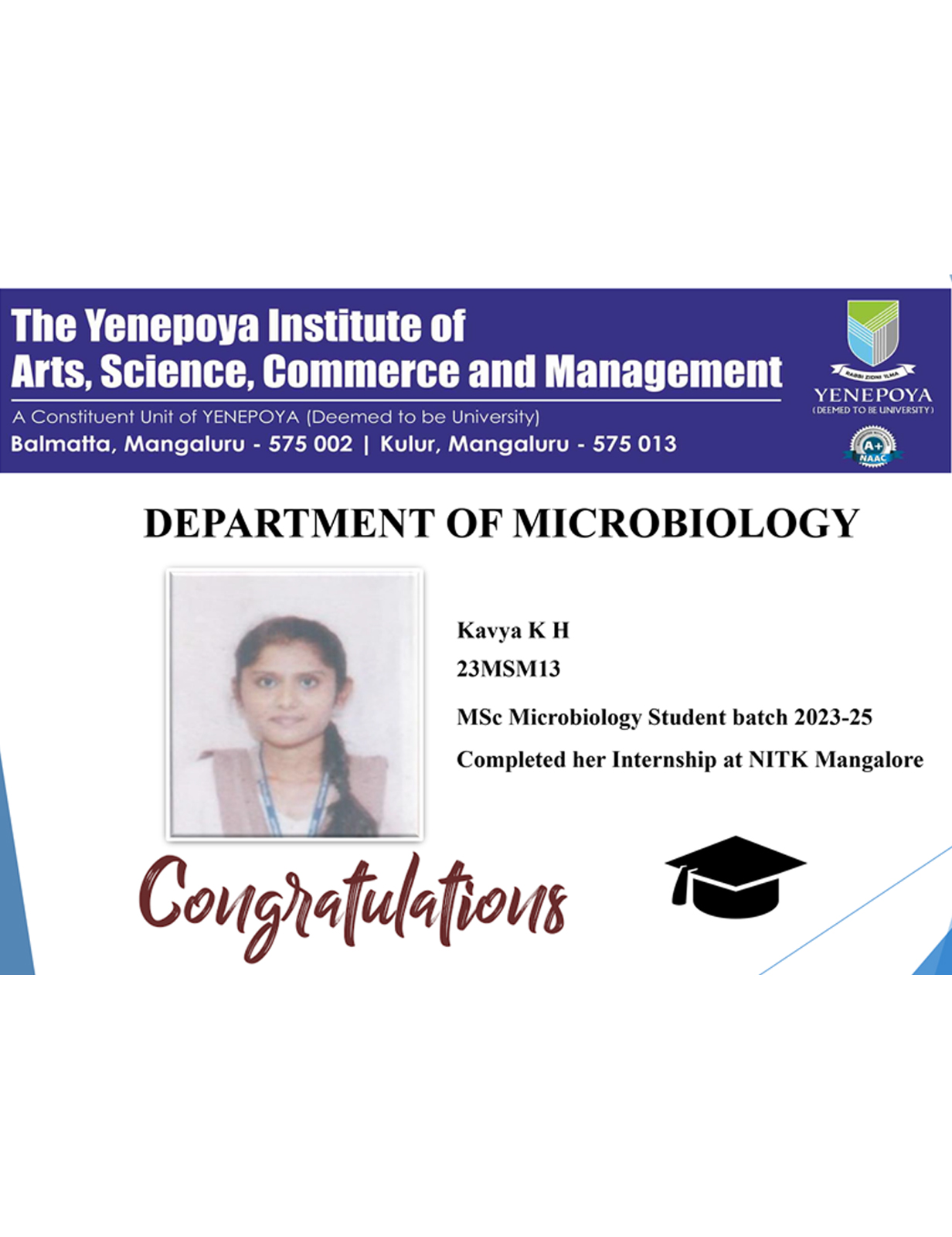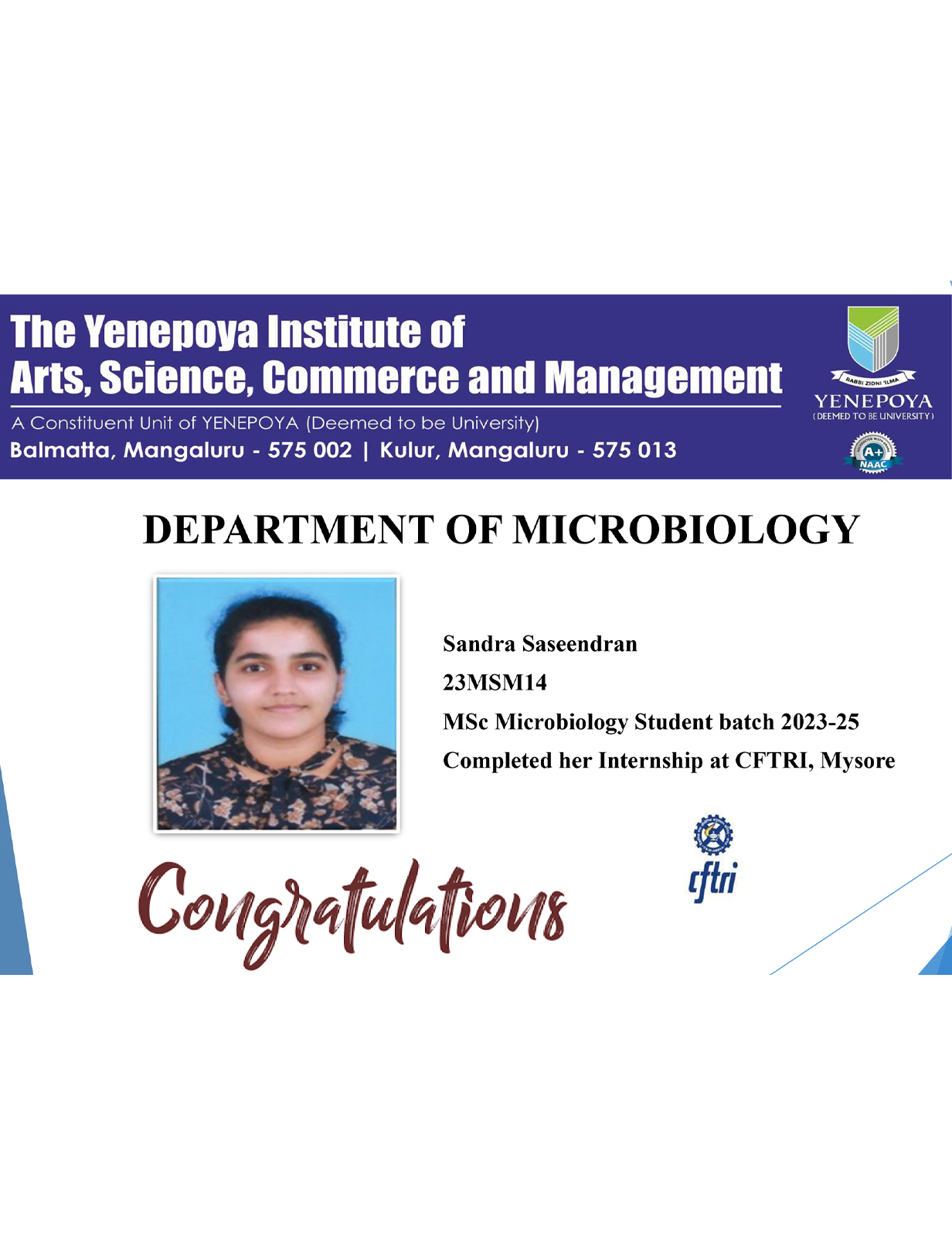M.Sc Microbiology (General)
Duration
2 Years
PROGRAMME OVERVIEW
The Yenepoya Institute of Arts Science Commerce and Management (YIASCM) offers the MSc programme in Microbiology, providing students with a comprehensive understanding of this fascinating field and its applications across various industries.
The Master of Science (MSc) in Microbiology program builds upon the undergraduate programme, offering advanced coursework and research opportunities over two years. Students delve deeper into microbiology, exploring topics such as microbial diversity, microbial genetics, food microbiology, agricultural microbiology, industrial microbiology, immunology, medical microbiology etc. Through advanced laboratory work, research projects, and interdisciplinary approaches, students enhance their practical skills and critical thinking abilities.
SCOPE OF MSC MICROBIOLOGY PROGRAMME
Graduates of the MSc Microbiology programme are well-prepared for various career paths in academia, research institutes, pharmaceutical companies, and healthcare. Students engage in hands-on laboratory work, research projects, and develop critical thinking abilities.
YIASCM supports the MSc programs with modern laboratories, specialized equipment, and resources necessary for conducting research and practical training in microbiology.
Collaborations with industry partners enable internships, industry visits, and guest lectures, fostering real-world exposure and networking opportunities.
The institute also offers career counselling, placement assistance, and guidance for further studies, facilitating successful transitions into careers or higher education.
ELIGIBILITY CRITERIA
Any student who has passed B.Sc. (Hons.) in Botany, Zoology, Life Science, Environmental science, Microbiology, Biotechnology, Pharmacy, MBBS, BVSc and any other life sciences degree having minimum of 55% marks in Graduation can take this course.
PROGRAMME OUTCOMES:
After MSc degree in Microbiology Students will be able to
- PO1: Integrate knowledge from microbiology with other applied disciplines such as food microbiology, industrial microbiology, soil and agricultural microbiology and genetic engineering.
- PO2: Apply interdisciplinary approaches to address global and societal challenges related to microbiology.
- PO3: Demonstrate skills in laboratory management from various sub-disciplines of microbiology, including molecular biology, microbial genetics, microbial physiology, immunology, medical microbiology and environmental microbiology.
- PO4: Implement quality control and quality assurance measures in microbiological processes.
- PO5: Apply microbiological knowledge and skills to real-world problems in healthcare, industry, agriculture, and environmental management
- PO6: Develop oratory, scientific conversation, analytical, problem-solving and writing skills.
- PO7: Assemble their knowledge in to an industry involving isolation of microbes from natural sources, drug discovery, contract research, Product development, standardization techniques etc.
- PO8: Engage in outreach activities and contribute to public education on microbiological issues and their impact on health and the environment.
PROGRAMME SPECIFIC OUTCOMES
- PSO 1 Define microbial taxonomy, diversity, distribution in natural environment and other sources.
- PSO 2 Describe microbial physiology, metabolism and their role in production of economically important products.
- PSO 3 Operate various instruments employed for sterilization, growth and to study metabolism of microorganisms.
- PSO 4 Classify various microbial infections, their transmission, control, prevention and treatment.
- PSO 5 Formulate various consortia of bacteria and fungi to be applied in fields Like food, soil, agriculture and medicine.

